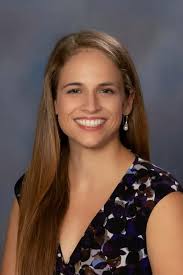Marijuana Anonymous: What to Expect, Find Meetings, & Hotlines



Amanda Berkey, M.Ed., is a freelance writer who specializes in substance use disorder, alcohol use disorder, and addiction treatment options.




Amanda Berkey, M.Ed., is a freelance writer who specializes in substance use disorder, alcohol use disorder, and addiction treatment options.
Marijuana Anonymous (MA) is a 12-Step program designed to help people who are living with marijuana addiction receive the support necessary to get and stay sober.1
This voluntary program is typically part of additional addiction treatment or as part of a recovery program. MA meetings can take place in person, virtually, and over the phone.
Understanding what Marijuana Anonymous is and how recovery support groups can fit into your treatment and aftercare plan can help achieve and maintain recovery.
What Is Marijuana Anonymous?
Marijuana Anonymous is a support group for people working to recover from marijuana misuse or cannabis use disorder. It offers information, tools, and community support that can help people build and maintain a sober lifestyle.
Like other 12-Step programs, such as Alcoholics Anonymous, MA is free and can stand alone or complement a comprehensive recovery plan. People often attend MA during treatment while working toward recovery, and later in aftercare to help maintain it.
What Are the 12 Steps of Marijuana Anonymous?
Marijuana Anonymous encourages and supports members as they work to be fully honest, open their hearts and minds, and begin to earnestly work toward recovery.
MA participants acknowledge that their current lifestyles are no longer working for them, and they want to stop using marijuana with the help of a greater Power.
The 12 Steps of MA are as follows:2
- We admit we are powerless over marijuana; that our lives have become unmanageable.
- We believe that a Power greater than ourselves can restore us to sanity.
- We have made a decision to turn our will and our lives over to the care of God, as we understand God.
- We will make a searching and fearless moral inventory of ourselves.
- We admit to God, to ourselves, and to another human being the exact nature of our wrongs.
- We are entirely ready to have God remove all these defects of character.
- We humbly ask God to remove our shortcomings.
- We will make a list of all persons we have harmed and are willing to make amends to them all.
- We will make direct amends to such people wherever possible, except when doing so would injure them or others.
- We continue to take personal inventory, and when we are wrong, we promptly admit it.
- Through prayer and meditation, we seek to improve our connection with God, as we understand God, praying only for knowledge of God’s will for us and the power to carry that out.
- Having had a spiritual awakening as a result of these steps, we try to carry this message to marijuana addicts and practice these principles in all our affairs.
Alternatives to Marijuana Anonymous
If you prefer a secular approach or simply don’t connect with the spiritual framework of 12-Step programs, you still have options for support.
SMART Recovery uses evidence-based tools, including cognitive behavioral therapy (CBT) techniques, to help people build skills for lasting change and sobriety. LifeRing Secular Recovery is another supportive, non-religious option for starting and maintaining recovery.
If you're struggling with another type of mental health or substance use disorder, various support groups are also available, including:
Find a Marijuana Anonymous Meeting Near You
There are multiple ways one can find a nearby Marijuana Anonymous meeting. One of the first steps would be to visit the MA website and access their meeting finder.3 This tool allows members to browse MA chapters across the country.
Those who attend a treatment program for marijuana misuse or addiction will likely participate in an aftercare program. Many aftercare programs work to put patients in contact with relevant support groups to help them maintain recovery, such as MA. Speaking to an aftercare programmer or a therapist could help connect you to MA meetings near you.
Online & Virtual Marijuana Anonymous Meetings
Occasionally, Marijuana Anonymous meetings may be held online or in a virtual setting. These options can be beneficial to those who are unable to access a local in-person meeting, as travel is not required to attend. MA’s website allows users to search for virtual meetings as well as in-person ones.3
Find Treatment Centers That Support Marijuana Recovery
Marijuana Anonymous can be a powerful part of recovery, but many people benefit from additional care and structure, too. Recovery.com can help you find treatment centers that treat cannabis use disorder and offer support like 12-Step integration, therapy, and aftercare planning. Compare providers and find a recovery program that works for you.
FAQs
-
Marijuana Anonymous. (n.d.). Marijuana Anonymous. https://marijuana-anonymous.org/
-
Marijuana Anonymous. (n.d.). The twelve steps of Marijuana Anonymous. https://marijuana-anonymous.org/how-it-works/the-twelve-steps/
-
Marijuana Anonymous. (n.d.). Meeting Finder. https://marijuana-anonymous.org/find-a-meeting/
Our Promise
How Is Recovery.com Different?
We believe everyone deserves access to accurate, unbiased information about mental health and recovery. That’s why we have a comprehensive set of treatment providers and don't charge for inclusion. Any center that meets our criteria can list for free. We do not and have never accepted fees for referring someone to a particular center. Providers who advertise with us must be verified by our Research Team and we clearly mark their status as advertisers.
Our goal is to help you choose the best path for your recovery. That begins with information you can trust.









